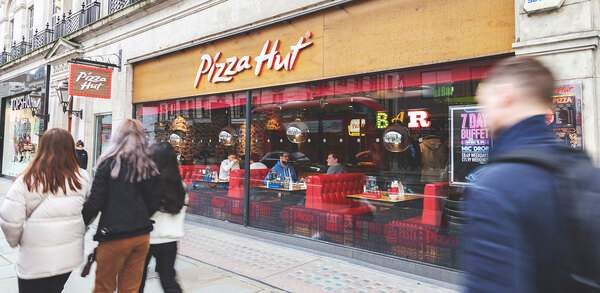Viewpoint: regulating the sharing economy
The sharing economy could be a fantastic part of the hospitality industry, as long as the relevant controls and taxes are in place, says Kate Nicholls
Readers of this magazine know better than most that hospitality touches all of our daily lives and is vital to the economic and social wellbeing of the UK. As such, it deserves proportionate recognition from government.
The sharing economy has undoubtedly been a source of innovation and has become a part of some â" but by no means all â" of our experiences. But it is dwarfed by the size, scale and importance of bricks-and-mortar hospitality businesses such as hotels, pubs, nightclubs, coffee shops, bars and restaurants in terms of jobs, dynamism, investment and, crucially, tax contribution.
So thatâs why it was disappointing recently to see treasury minister Liz Truss so vocal in her praise on social media of companies in the sharing economy. This overt public support appears to be at odds with wider concern about these companiesâ lack of tax contribution and corporate responsibility for their own and their partnersâ activities. They also raise worrying concerns of impartiality coming, as they do, in the middle of an ongoing treasury and EU consultation into online and digital corporate taxation.
The sharing economy has been the subject of several government and select committee inquiries, competition authority investigations, and private membersâ bills â" all of which recommended tighter regulation and a levelling up of safety and standards.
Letâs take the example of alternative accommodation providers. With affordable housing at a premium, the use of multiple lets by unscrupulous landlords acting as businesses is intolerable. The current regulatory environment (and non-existent enforcement) allows them to avoid the legislative and tax pressures to which hotels, guest houses and accommodation providers adhere. This clearly creates an unfair competitive environment and risks the safety and security of customers.
We want the government to provide transparency and fairness for genuine hospitality businesses, which currently face unprecedented regulatory cost pressures on people, property and product, alongside inequitable taxation and burdensome red tape. Our growth, innovation and sustained track record of investment and job creation are all being buffeted and jeopardised.
The point is not about stopping the advance of technology and continued innovation (indeed, hospitality should embrace it where appropriate), but more about ensuring that the government appreciates the fast-moving nature of the world in which we operate and ensures that tax and regulatory systems are in place to guarantee fairness.
Let me be clear: We are not calling for the prohibition of the sharing economy, only that it be subject to the same rules and regulations as the outstanding businesses operating in the hospitality sector â" for the continued benefit of our high streets and wider society.
Kate Nicholls is chief executive of UKHospitality

















